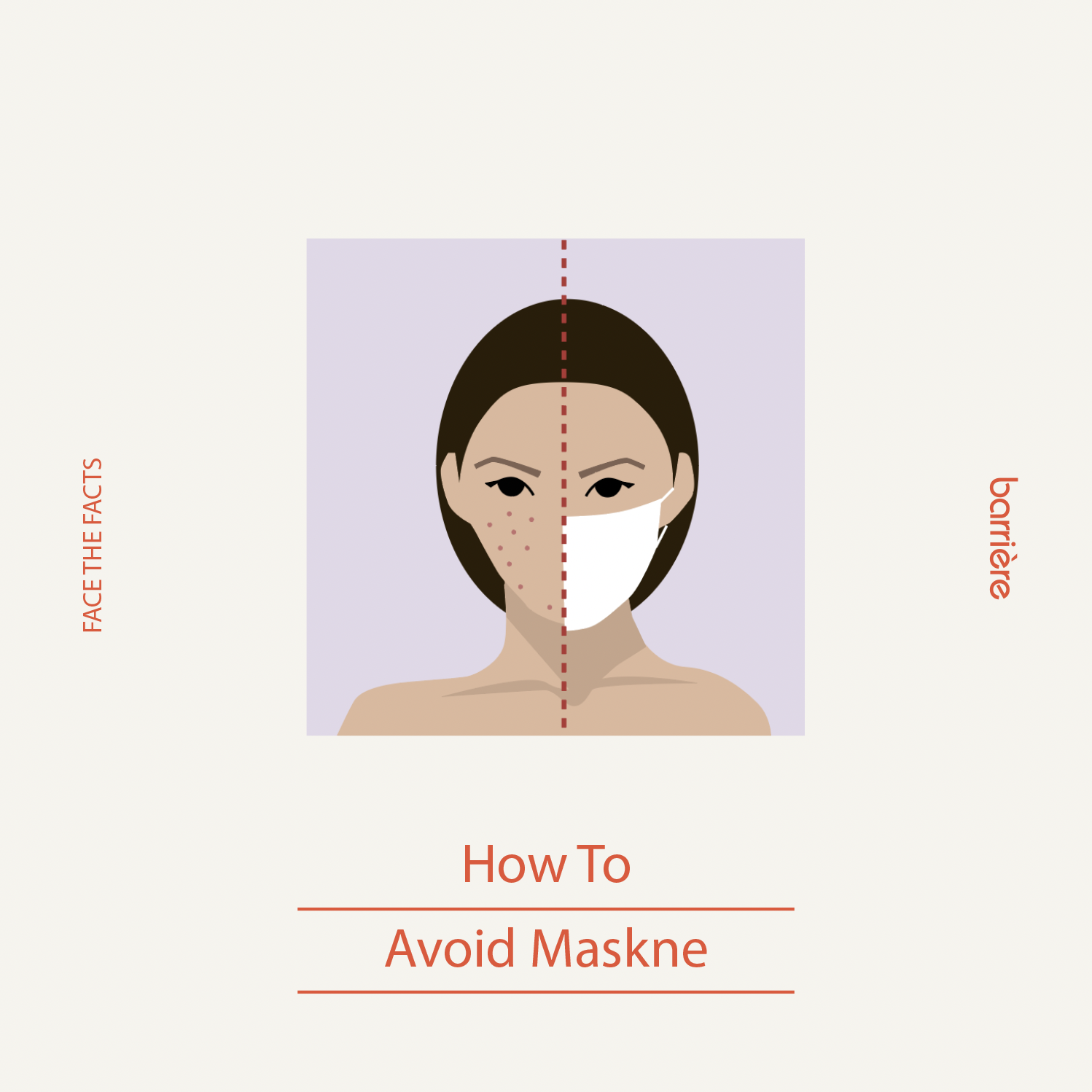BUNDLE & SAVE: 15% OFF ALL BUNDLES
How To Avoid And Treat "Maskne" According To Top Dermatologist Dr. Diane S. Berson

As if 2020 wasn’t difficult enough, many are finding themselves dealing with breakouts caused by wearing face masks and protective coverings for hours at a time. New York based Dermatologist Dr. Diane S. Berson reveals the steps you should take to fight and prevent skin irritation so we can skip the “maskne” not the mask!
What is ‘maskne?’
Maskne, or acne mechanica as it is technically referred to, can occur when sweat, oil and bacteria are trapped on your skin while wearing a mask for an extended period of time, creating the perfect breeding ground for breakouts. This type of acne is different from breakouts or blemishes caused by hormonal imbalances or hereditary issues.
Why does it happen?
The skin around the nose, mouth and chin — the places covered by a face mask — is very delicate and therefore more prone to irritation. Bacterial imbalances from humidity and friction from your mask can promote acne and rosacea flare-ups as well as something called perioral dermatitis. This is when fine pimples and pustules appear around the nose and mouth.
What are the best ways to prevent “maskne” and skin irritation from mask wearing?
Wearing a disposable or semi disposable mask or frequently cleaning your cloth mask with unscented soap-- after each wear, can help reduce or prevent bacteria from developing underneath. A breathable, soft mask, like a barrière mask, will allow for more airflow, reduce humidity and build up from forming under your mask as well as minimize friction that can irritate the lower part of the face. There are many commercial face masks on the market that are pre-treated with chemicals that are not suitable for sensitive skin so selecting a mask that is hypoallergenic and soft can help minimize or prevent maskne and other forms of skin irritation from developing.
How should we be prepping our skin pre and post mask wearing?
It is important to keep your face clean and moisturized when you are wearing a mask frequently, however be gentle to your skin and avoid products that are too drying because they will cause the skin barrier to become more compromised. Use mild soaps and water for your face, nothing scented or antibacterial. If you have sensitive skin that is prone to breakouts or rashes, try applying a barrier cream or spray, such as petroleum jelly or zinc oxide, before you put on your mask to minimize irritation. This can help calm and balance our normal skin flora. If you know you’ll be spending time with a mask on, consider taking a break from unnecessary cosmetics that could clog your pores or aggravate breakouts or skin lesions even more.
Are there other skin issues/conditions related to mask wearing that wearers should be aware of?
Dry skin, redness, and in some cases skin lesions, are common face-mask skin problems, especially for those with sensitive skin. Dry skin and chapped lips are also common face-mask skin problems. You can prevent chapped lips by applying petroleum jelly to your lips after you wash your face and before you put on your mask. It is important to get a professional opinion if you find that any rashes or irritations are spreading or worsening, or if you see any signs of infection.
What can we do at home to help treat some of the most common mask-related skin issues?
Keeping your skin clean and applying moisturizer adds a protective layer that can reduce dryness. You want to apply moisturizer immediately after washing your face with a gentle cleanser or soap and water. Occasionally washing your face with a dandruff shampoo that has ketoconazole or selenium sulfide in it can also be calming for the skin and help remove excess yeast buildup – especially around the nose and mouth areas. It’s common for people to treat their maskne with products that contain benzoyl peroxide. Now is not the time to experiment with harsh products, such as chemical peels, exfoliants, or retinoids. Cut down on using any products that you’ve used in the past that you find to be irritating your skin during this time.
